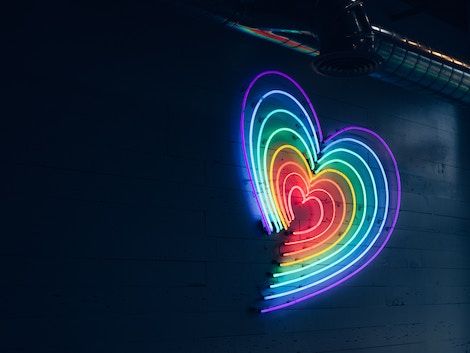My love language, first and foremost, is books. Except, when I shared this with my friends, they claimed that it made no sense. “Books don’t count,” was what they said. Naturally, I was taken aback by their blunt rejection. My friends are avid book readers (we’re all publishing students: books are our jam). Obviously books should count! In fact, books are so special that they are able to provide an entire love language of their own. And so, to prove them wrong (the lawyer in me dormant, not dead), here are the five ways that books have shown me love—or, as I like to refer to them, the five love languages of books.
Get your phone and go on social media. What do you see? Confidence, poise, conviction. Never has a generation seemed so self-possessed, so sure of themselves. Except, we’re still human. And humans are no strangers to doubt, to insecurity. Especially women: from an early age, we’re told that we are too much, too little. Too quiet and too loud. Too reserved and too friendly. The sad reality of our society is this: before we learn anything, we learn that we are not enough. Thank goodness for our sources of relief: our friends, our loved ones—and, if I’m being perfectly honest, wine. Most of all: thank goodness for books. Because books do more than offer relief, they offer tools. Tools that empower us, embolden us, that allow us to truly live our best lives (and not just make it seem as though we do on Instagram). For me, these are the books that allow me to be myself (No One Tells You This by Glynnis MacNicol) and that give me permission to be angry (Rage Becomes Her: The Power of Women’s Anger by Soraya Chemaly). They’re usually nonfiction titles, though not necessarily. And the cherry on top: when I share these books on social media, I am sharing affirmation, sharing love. We all have one: that book that doubles as a safety blanket. It might be a book that you were read to as a child (Charlotte’s Web by E.B. White) or the one you got as a gift for your seventh birthday (Matilda). Maybe it’s the book that helped you through tough times (Chronicles of Narnia by C.S. Lewis), or the one whose pages held an entire group of fun, quirky friends (The Babysitters Club by Ann M. Martin). This is the book that you return to when you are feeling dispirited or melancholic. It’s the mac n’ cheese of books. It’s your grandmother’s hug. It’s a hot cup of tea on a rainy day. It’s the purest source of comfort—and comfort is love. The what-if game is played by anyone and everyone with a little (or a lot of) imagination. For me, this began when I was a child. What if the dinosaurs had never gone extinct? What if my hair came alive? What if my dogs learned to speak English? Nowadays, my reverie-like tendencies have subdued (a little, anyway). But I still feed my inner dreamer with books. All I have to do is pick a novel where women now have powers similar to those of electric eels (The Power by Naomi Alderman) or one where the Earth’s spin around the sun is increasingly slower (The Age of Miracles by Karen Thompson Walker). These stories take me to a different world. It feels like teleporting to the inside of a dream, like seeing a fantasy come to life. And that, too, is a way to show love. Let’s face it: sometimes reality sucks. Maybe it’s something minor, like your flight got delayed and you’re stuck in an overheated, overcrowded airport. Or maybe it’s something major, like you or a loved one is ill, and the hospital has begun to feel like a second home. Big or small, there are days when you don’t want to go where everybody knows your name. Instead, you’d like to escape, to live a different life. Of course, physical escape isn’t always possible. But mental escape is: through novels. The right novel can have us believing that we’re on a tropical beach, witnessing a family about to get married (Beautiful Day by Elin Hilderbrand). It can take us to a different time (That Kind of Mother by Rumaan Alam) or make us feel like we’re a part of a mysterious spectacle (The Night Circus by Erin Morgenstern). If it feels like magic, it’s because it is. And what is love, if not magic? Love is many placid things—kindness, comfort, compassion. But it’s also fire—demands, conflicts, disagreements. The books that fall into this category are the ones that challenge us: to confront authority, to make a change, to see things differently. They might be lengthy (Sapiens by Yuval Noah Harari) or difficult to read (Infinite Jest by David Foster Wallace) or they may be brilliant in their simplicity (Hunger by Roxane Gay). But not a single one of them is easy. They are challenging, but they are worth it. And they stay with us forever. These are the 5 love languages of books—or the ones that I could think of, anyway. I’m sure there are more out there. Thoughts?
